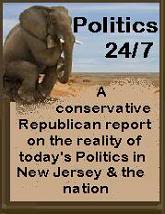
He writes;
Hopefully by now youre somewhat familiar with how the FairTax works, but if not let me explain it briefly: You get rid of all income and payroll taxes and you get rid of corporate taxes completely. When someone tells you corporations should be taxed more – remember, if more taxes are put on a corporation – the corporation is simply going to raise the prices of their products to cover the increase – passing the increased cost to you.
That sounds good but it is also typical Mike Huckabee.deceptive.
Now I shouldnt be too hard on Huckabee. He does at least have the guts to propose true reform of a tax system that is obsolete, chaotic, oppressive, and a hindrance to economic growth. We need a presidential candidate and President who will not simply tinker with a broken system but prepared to support a cash for clunkers like approach to our tax code by junking it and replacing it with a system that does not penalize success, oppress entrepreneurial innovation, and hold back our economy.
Huckabee is correct when he writes refers to tax reform in his editorial by writing , I do know we wont have a chance if we dont have the courage and leadership in Congress to see the task through. That is most certainly true. But that leadership must come from more than just Congress. Sweeping change must be supported by our Commander-in-Chief, the person who has the power of the bully pulpit behind them and who believes in the reforms that he or she convinces the nation of the need for.
But the Fair Tax is not the reform that this nation needs. First of all, the Fair Tax is anything but fair. If George Soros decides to have his help purchase televisions for all the bathrooms in all of his estates, he can afford the additional cost that a national sales tax places on his purchases. But for an average family that lives from pay check to pay check, the new national sales tax simply makes it harder for them to replace the one TV screen that they have had for 10 years and is displaying a screen with a picture that is shrinking.
For a family making $200,000 a year, a rise in the cost of all products may be affordable but for too many higher prices simply puts more products further out of the reach and places a significant burden on them.
Higher prices are not what I believe the Republican candidate for President or Congress should be proposing.
Instead I believe it is incumbent upon our Party and its candidates to demand that we abolish our current arcane tax code and replace it with a Flat Tax. Unlike the so-called Fair Tax, a Flat Tax is exactly what it says..flat. It is one rate for one nation. There is no discrimination, there is no hike in the costs of products and there is no penalizing of success. Instead, a Flat Tax offers tax relief, puts an end to loopholes, and grows our economy.
Of the last ten years, the fastest growing economies of the world have adopted a flat tax for their nations. The greatest examples of this exist in the former Soviet states of the Balkans. When they adopted a flat tax, they saw their economies boom and have maintained steady economic development and growth. Yet, the United States, still hangs on to our antiquated tax system, a system that only grows our economy whenever we tinker with it to reduce rates. And when we reduce rates, which area of debate is the greatest source of disagreement? Why it is who those reductions should go to. And from there inevitable comes the debate on what constitutes defining one as rich.
The Flat Tax puts an end to all those debates. With a Flat Tax rate of say, 14%, the wealthy still pay a greater percentage than do the less wealthy. 14% of 40 million comes out to be much more than does 14% of 40 thousand. And unlike Mike Huckabees national sales tax, it does unduly burden families with higher costs. In fact for many, it lowers the amount of money that the government currently takes from them.
Huckabee understands that we need real change in America. That is a good thing, but what he does not realize is that the change he proposes does more harm than good and if he really wants to promote tax fairness, then the Flat Tax, one rate for one nation is the way to go.
Government does not produce wealth and it is not naturally sustainable. The people and the entrepreneurial spirit of America through its free markets, are what creates wealth and sustains our government. That is why I believe we must eliminate our current oppressive tax code, a tax code that rewards failure must go. We need leadership that will implement what I call a National Economic Recovery and Responsibility plan that will help spark our economy, reduce spending and put America back on the road to a steady, growing, stable economy. As such I offer my own detailed tax reform plan for Governor Huckabee to consider in place of his national sales tax.
I.-The National Tax Equity Act
(For a detailed explanation click on thebill titlelink above)
Those four allowances would be:
- – $26,600 for married filling jointly
- – $16,850 for single head of household
- – $13,650 for single
- – $5,300 for each dependent child
1.B Businesses and Corporations with gross earnings up to the value resulting from multiplying the number of legal US resident employees in the business against 2 times the established poverty level (based on the year preceding) shall be exempt from taxation with all gross income above that level taxed at the specified rate.
1.C– All corporations will be taxed by the same single national tax rate and they will take their total income, subtract total expenses and if the result is a positive amount (profit), they will pay tax on that amount at a the national tax rate.
2.A – All Businesses and Corporations thatexceed federalenergy efficiency and environmental standardswill be entitled to an annual dedcution of10%the amount oftheir annual profit.
2.B-All individual home amd property owners thatexceed federalenergy efficiency and environmental standardswill be entitled to an annual dedcution of10%the amount oftheir annual profit.
3.A -There shall be an exemption up to but not to exceed the greater of 10% of gross annual income or 25% of the annual median income, applied to College Savings Accounts, Individual Retirement Accounts (IRA), Money Market Accounts and Certificates of Deposits.
3.B– Allow for the automatic deposit of tax refunds that are based onthe rate of savings formula implemented upon passage of thefederally insuredPrivatizedFuture Security Annuity Accountsprogram that will take the place of SSI.(see proposed PFSA program here)
3.C-Provide employment-based health insurance to individuals with annuals earnings under $55,000, in the form of refundable, advanceable tax credits. Families would get up to $5,700 a year and individuals up$2,300 to buy insurance and invest in Health Savings Accounts
4. Social Security benefits are exempt from taxation.
5. A complete 100% exemption from the flat tax for spouses of military personnel deployed in a theatre of battle to be effective from the time of deployment to the end of the calendar year after deployment ends.
6– The following will hereby require a 2/3 majority for passage and adoption:
-Raising or reducing the flat tax rate
- -Extending or eliminating tax credits
- -Increasing or decreasing the rate of a penalty tax
- -Creating any new penalty taxes
- -Borrowing money to pay for general expenses
8. Specific provisions for implementation to be determined by a Congressional review committee with input from regulators, industry representatives and budget experts
Filed under: General Issues & Events, Mike Huckabee | Tagged: #tcot, 2012 caucus schedule, 2012 election sites, 2012 election strategy, 2012 Presidential Election, 2012 primary schedule, 2012 race for president, 2012 Republican caucuses, 2012 Republican Presidential Primaries, 2012 republican primary, about the republican presidential candidates, Anthony Del Pellegrino, Arkansas Governor Mike Huckabee, biographies, bios, campaign 2012, campaign tactics, candidate bios, digg, election 2012, Fair Tax, flat tax, Flat Tax proposal, Flat Tax versus Fair Tax, G.O.P., GOP, gop12, Huck PAC, Huckabee 2012, Huckabee bio, Huckabee biography, Huckabee for President, Huckabee leads Republicans in national poll, Huckabee on 2012, Huckabee tax day editorial, Huckabee’s chances in 2012, HuckPAC, is mike huckabee running for president, kempite, Mike Huckabee, Mike Huckabee bio, Mike Huckabee biography, Mike Huckabee Fair Tax hoax, Mike Huckabee for Peresident, Mike Huckabee on the issues, Mike Huckabee proposes national sales tax, national sales tax, political strategy, politics 24/7, Politics 247. U4Prez, presidential commercials, race for the white house, reddit, Republican caucuses, Republican presidential candidate biographies, Republican primaries, republicans running for president in 2012, StumbleUpon, taxes, the 2012 presidential campaign, the 2012 presidential election, The presidential election, the republican race for President, White House 2012, White House 2012 on Twitter, whitehouse12, whitehouse2012, Who is running for President, Who will win the presidential election, wordpress political blogs | 15 Comments »






 Online Conservative Talk Radio
Online Conservative Talk Radio Poitics 24/7
Poitics 24/7 The Bulldog Pundit
The Bulldog Pundit The Right Scoop
The Right Scoop To Be Right
To Be Right Verum Serum
Verum Serum






 Mark Levin
Mark Levin Michelle Malkin
Michelle Malkin The Hugh Hewitt Show
The Hugh Hewitt Show
